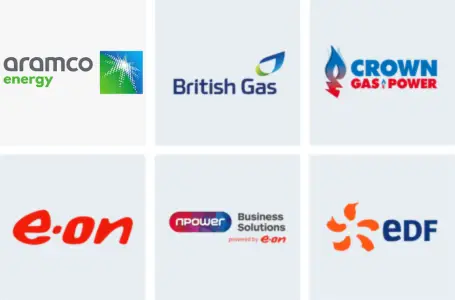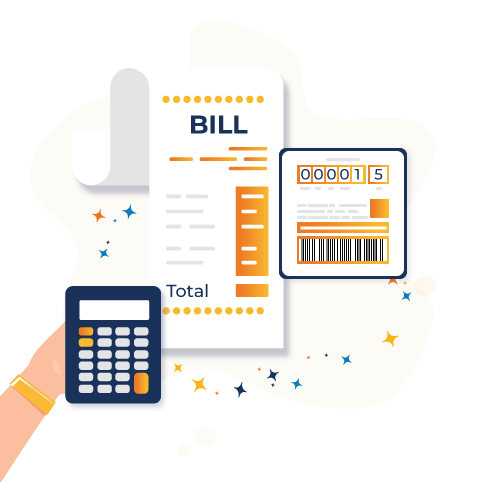Market-Wide Half Hourly Settlement (MHHS)
The Market-Wide Half Hourly Settlement Programme (MHHS) addresses the challenges many UK businesses face with estimated electricity consumption. These issues often lead to being undercharged or overcharged on electricity bills, which can strain a business's cash flow.
Upgrade Today
Upgrade Now
Market-Wide Half Hourly Settlement (MHHS) Compliance Guide
This guide will assist you in taking the next steps to comply with the upcoming Market-Wide Half Hourly Settlement (MHHS) programme mandated by Ofgem.
What Is The Market-Wide Half Hourly Settlement?
The MHHS aims to ensure UK businesses are billed more accurately by submitting automatic meter readings every 30 minutes. This will ultimately lead to fairer and more accurate billing, helping to avoid errors that can financially burden businesses.
When Will MHHS Start Rolling Out?
Current plans are to begin implementing the MHHS programme in September 2025, with full implementation expected by May 2027. Several steps need to be taken to ensure a smooth rollout, and the 18-month window allows time for testing before the full launch.
Will I Need A New Electricity Meter?
UK businesses with basic smart or traditional meters will need to upgrade to a half-hourly meter that can send readings more frequently. This change is mandated by the industry regulator Ofgem, and failure to comply before the deadline may result in penalties.
Get a New MeterHow Does MHHS Impact Multi-Rate Meters?
Anyone currently on a multi-rate meter that cannot send half-hourly readings will need to upgrade. Half-hourly meters are compatible with Economy 7 and 10 tariffs, so businesses do not need to worry about access to non-peak hour savings.
What Are Half-Hourly Meters?
Half-hourly meters take electricity readings every 30 minutes and automatically send them to your supplier. Also known as HH or 00 meters, they have been popular among businesses with high electricity consumption (maximum demand of 100 kWh or higher) as a way to manage electricity costs effectively.
Why MHHS Is Being Implemented?
Ofgem began reviewing the electricity market nearly a decade ago and concluded that market-wide adoption of half-hourly meters would address many issues stemming from estimated billing. It also supports the UK’s efforts towards reaching Net Zero.
Since many larger businesses have already been required to use half-hourly meters for several years, this move represents a logical next step to reducing lengthy billing settlement periods. Ofgem has designated Elexon to operate the IT data platform that will support MHHS.
What Do Businesses Need To Do To Comply With MHHS?
UK businesses of all sizes must have electricity meters capable of taking automatic readings every 30 minutes. This may require upgrading their current meter or installing a new one.
Compliance with this mandate is necessary, and although the specific penalties for non-compliance are not yet known, businesses must be prepared for them. The official live date is set for May 2027.
Beat the MHHS Deadline
Business MHHS Compliance Checklist
Simple checklist to make sure you're MHHS compliant.
Check current meter
Determine the type of meter you currently have to see if action is required. You may need to examine your electricity bill or your physical meter, which can sometimes be labeled as ‘HH’ or ‘00’ meters.
Start upgrade
If you do not have a half-hourly meter, you will need to initiate the upgrade process. It may be more practical to do this when switching suppliers. You’ll get a new MPAN with a new installation.
Review new contract
Since you'll be receiving a new type of meter, your supplier will need to provide you with an updated contract.
Electricity review
Once your new half-hourly meter is installed, use it to optimise your business's electricity consumption.
Find Your New Meter
In an emergency
Smell gas or suspect a leak?
Call the National Gas Emergency Helpline on 0800 111 999.
Experiencing power cuts?
Call 105 (free) to get help and advice from your local network operator.
Current Energy Price Cap
The energy price cap from 1st July to 30th September 2025 is set at £1,720 per year, a 7% decrease from the current cap of £1,849 (April to June 2025).
What Is The Energy Price Cap?
The cap limits the unit price of gas and electricity. It doesn’t cap your total bill, which depends on how much you use.
Energy Price Cap (p/per kWh)
| Charge | Oct-Dec 2024 | Jan-Mar 2025 | Apr-Jun 2025 | Jul-Sep 2025 |
|---|---|---|---|---|
| Electricity unit rate | 24.5p | 24.86p | 27.03p | 25.73p |
| Gas unit rate | 6.24p | 6.34p | 6.99p | 6.33p |
Energy Price Cap History
| Period | Cap (£) | Change (£) | Change (%) |
|---|---|---|---|
| Apr-Jun 2025 | £1,849 | +£111 | +6% |
| Jan-Mar 2025 | £1,738 | +£21 | +1% |
| Oct-Dec 2024 | £1,717 | +£149 | +10% |
| Jul-Sep 2024 | £1,568 | -£122 | -7% |
Can I Switch In 2025?
Yes, many suppliers are now offering fixed-rate tariffs. Comparing deals could save you money over the default capped rates.
How Ofgem Calculates The Price Cap
- Wholesale energy costs
- Network upkeep costs
- Government policy costs
- Operating costs
- VAT (5%)
FAQs
What is a typical customer?
Ofgem defines a typical customer as one using 2,700 kWh electricity and 11,500 kWh gas annually.
How often does the price cap change?
Every three months (Jan, Apr, Jul, Oct).
